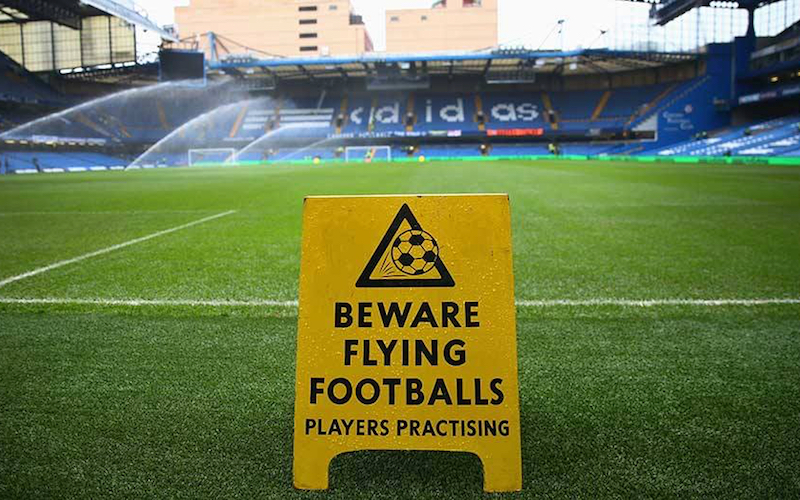
Europe’s Football Battlefield
Over recent decades, illegal betting and match fixing in Europe’s football fields have become a headache for both die-hard football fans and authorities alike. A recent study has revealed that approximately $140 billion are laundered every year through underground sports betting markets. In the case of football, the problem finds its roots at home, where corrupt players, referees, administrators, and club owners conspire together and play dirty games to their own advantage, at the expense of those outside their inner circle.
Europe’s football industry has felt the wrath of multiple match fixing scandals, varying from incidents involving second rate teams to the top-tier big shots of the English Premier League to full blown investigations like Italy’s 2006 Calciopoli affair. The latter took place shortly after Italy’s historic World Cup victory and gave a whole new meaning to the term “match fixing” as it involved bigwigs such as Milan, Juventus, Lazio and Fiorentina. The mastermind behind this criminal organization was General Director of Juventus Luciano Moggi, who worked with directors and officials of other teams, was involved in high scale match fixing, and was found guilty of bribing referees to ensure favorable results in key matches.
While the teams and individuals involved were punished for their crimes, justice was more kind to those in high places.
Juventus was relegated to the second instead of the third division following their appeal, and Silvio Berlusconi’s AC Milan incurred symbolic point deductions while retaining its position in the First Division.
Dashing hopes of “never again,” football fans received a cold shower again this year after 13 players and referees were found guilty in England on charges of match-fixing, bribery and money laundering. Such high profile scandals have exposed the corrupt relationships that can easily evolve between clubs, players and referees, threatening to shatter the appeal of the world’s favorite sport.
The red card
In light of these notorious scandals, Europe has finally shown a willingness to fight the problem head on in the form of a new match fixing treaty initiated by the Council of Europe. The Convention on the Manipulation of Sports Competitions was signed on September 18 by 15 nations including Bulgaria, Denmark, Finland, Germany and Greece, and is set to come into force on January 1, 2015. It aims to increase cooperation between nations, sports associations, leagues and competitions in order to facilitate the flow of information and hence the ability to fight match fixing and sports corruption on a much wider scale.
While this initiative should certainly be welcomed as an ambitious first step to tackle the corrosive nature of sports corruption, more action is needed for it to gain real ground on the international level. First and foremost, the convention’s signatories have to be able to show their unwavering commitment to weed out their own trespassers. If the current state of affairs in just one of these signing nations is anything to go by, however, the battle may very well be an uphill one.
Playing off-side in Greece
The existence of deep-rooted corruption and match fixing is certainly nothing new in the world of Greek football. The country itself is famous for its endemic corruption among citizens and government, and a recent report reveals that Greek football is also in the same boat. 12.8% of players interviewed admitted that they had been approached to fix a match within the past year and a shocking 64% said they were confident that games in their league were fixed in the last year.
The Koriopolis match fixing scandal of 2011 (named to mimic its Italian equivalent) drives this point further. In a series of leaked telephone recordings between powerful figures, evidence was uncovered that pointed to the existence of a criminal organization in Greek football implicated in match fixing, extortion, bribery and other forms of intimidation.
While the case is still open, little has been done to bring to justice those at the helm of the organization, including the shipping tycoon and owner of Olympiakos FC, Evangelos Marinakis. The prosecutor in the case maintains that in order to satisfy favorable outcomes of matches, Marinakis, using the position of the President of the Greek Football Federation, Giorgos Sarris, whom he allegedly helped elect, ensured the installment of specific of referees to secure the desirable match results. Despite the released telephone recordings, the Greek media has repeatedly failed to report on the issue while Marinakis, Olympiakos FC and others continue to play at their game with impunity.
Unlike Italy’s Calciopolis scandal, where the criminal justice system showed its willingness to challenge Big Football, the same cannot be said in Greece’s case, where media and authorities alike are either reluctant or afraid to take on the state of corruption festering within the Hellenic Football Federation.
In the daunting task of fighting against match fixing in football, the recent Convention is certainly a step in the right direction, but without full dedication from nations and the international community, these efforts will likely go in vain. If football continues down this self-destructive path, it could affect the way society views not only football teams, leagues and associations, but the media, the judicial system and government in general. It would be wise to remember the remarks of Michel Platini, that “football is a reflection of society. It mirrors not only its values, but also its fears and prejudices.”

